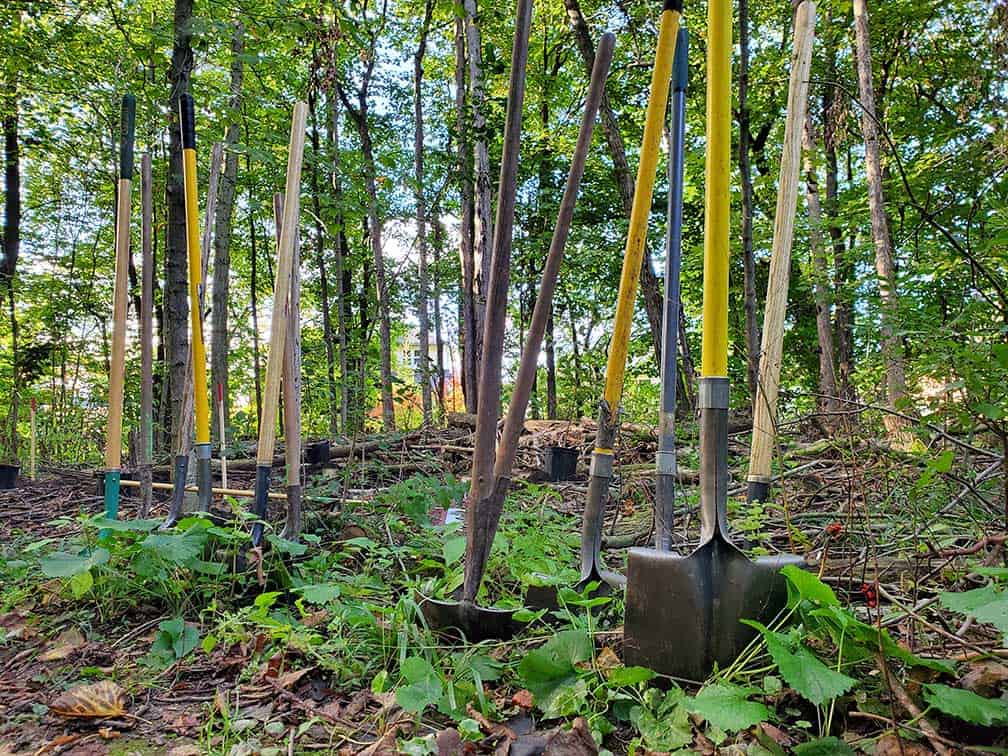Reep Green Solutions has done it again. They’ve just received a grant for some $250,000 from the Canadian government’s 2 Billion Trees program.
The money will go toward planting 800 trees across multiple sites in the region. It will also be used to build up the nursery at the Elmira Nature Reserve. The organization also plans to establish a new nursery at rare Charitable Research Reserve. It will be next to a community garden which has a partnership with the Cambridge Self-Help Food Bank.
At both locations, volunteers will grow trees for greening projects across the region.
“We wanted to make sure that this is accessible so people can visit, volunteer at the space and really be engaged in the process right from the seed collection,” explained Patrick Gilbride, Reep’s associate director and manager of green infrastructure programs.
“I don’t want to say that the end goal is to plant the tree, because after that it needs to be looked after too. It’s really sort of involving people in all aspects of caring for trees right from the beginning. We want to be able to do that where people are at, so that’s one reason we want to have both locations,” he said.
“It’s been recognized for a while that there’s a need to plant trees and that’s why all these organizations have been doing it. But what I find really exciting with this particular grant is that we’re all going to be working together and sort of coordinating our efforts so that we can really get more trees in the ground and do it well.”
He says some of the funds will go toward installing solar panels at the Elmira Nature Reserve to automate the irrigation system.
“The Elmira one, that’s been up and running for 10 years, totally volunteer driven. And I would say it’s been a success, but I think they’re running into a point where if they really want to expand their operations, they have to make a few investments, both in terms of capital investments and some people investments.”
Gilbride says the nurseries will focus on native species, and give the community opportunities to participate in green industries.
“The goal is to really ramp up the number of native trees that we grow, but also to engage the public in the process of doing that. To educate people.”
Trees that are sourced natively have a better chance of survival, said Gilbride.
“One of the reasons that we felt that we fit a niche that isn’t being fulfilled currently, is we want to collect seeds for the trees locally, because we know that the seeds that are from trees that have grown here are going to be adapted to the climate here.”
Once they’re big enough, the trees grown will go towards community greening projects such as the microforest model that Sustainable Waterloo Region staff install on private properties in cooperation with landowners, as well as restoration projects such as the Elmira Nature Reserve and the Mike Schout Wetlands in Wilmot Township.
Gilbride says the idea for this came when he was looking to source more trees for the organization’s backyard tree planting program, and multiple organizations came alongside to submit the grant together including rare, Trees for Woolwich, Sustainable Waterloo Region, Let’s Tree Wilmot and the Region of Waterloo.
“It’s the collaboration piece between all these really passionate organizations and people,” said Gilbride. “It’s really great that we will be working together on this project going forward. We’ve always sort of been friends and shared information, but to really have a shared vision for being able to work together on this and work a little more efficiently because of that, I think that’s the most exciting piece of this.”
He says he is hoping to hire someone to manage the nursery at rare starting in the spring, and to have it at least semi-operational this year.
The best way for people to get involved is to contact Trees for Woolwich, because they already have a nursery set up and running, said Gilbride.









